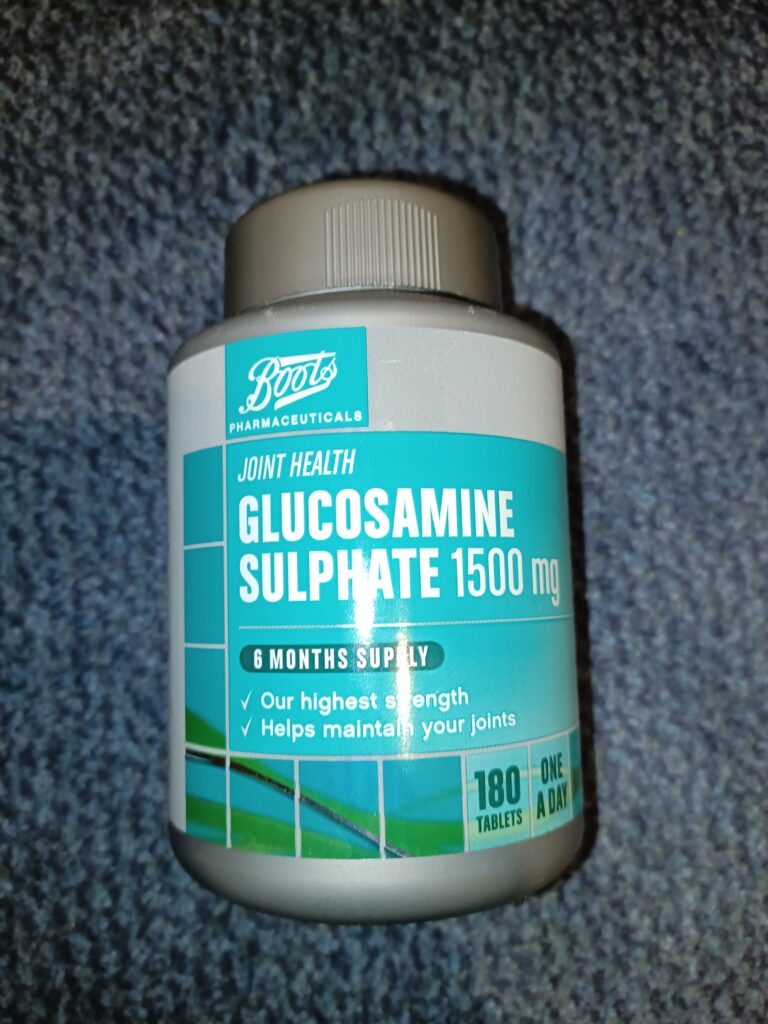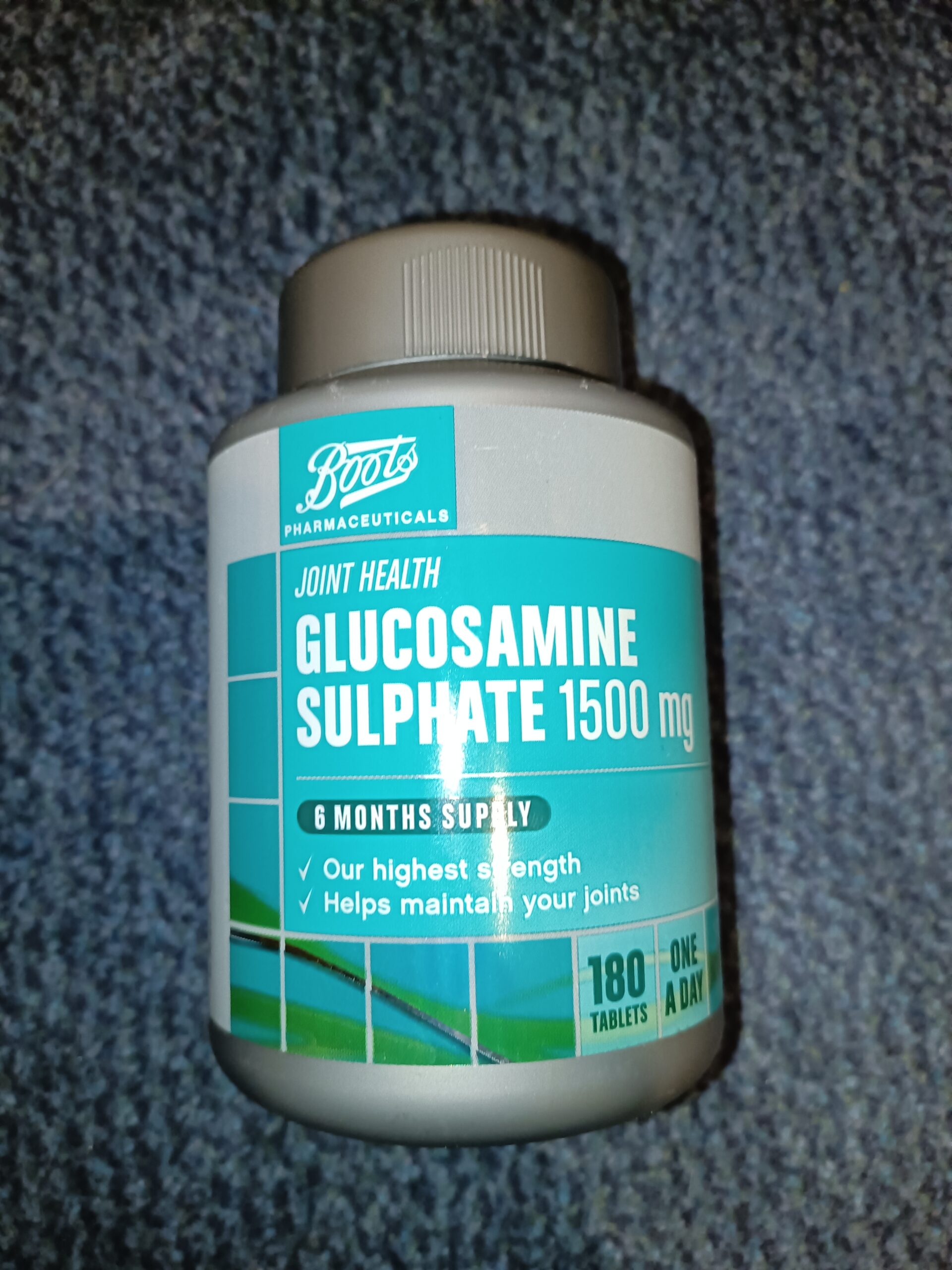Glucosamine is a popular supplement used by many runners to help support joint health and reduce the risk of joint pain and injury. While there is some evidence to suggest that glucosamine can be beneficial for runners, there are also some limitations to consider.
Benefits of Glucosamine for Runners
Benefits:
- Supports Joint Health: Glucosamine is a natural component of cartilage, the tissue that cushions joints, and can help support joint health by promoting the repair and maintenance of cartilage.
- Reduces Joint Pain: Studies have shown that glucosamine can help reduce joint pain and stiffness in people with osteoarthritis, a common condition that affects the joints. Runners who experience joint pain may benefit from taking glucosamine to help reduce their symptoms.
- May Improve Running Performance: Some preliminary research has suggested that glucosamine may improve running performance by reducing muscle damage and inflammation after exercise.
Limitations of Glucosamine for Runners
Limitations:
- Limited Evidence: While there is some evidence to suggest that glucosamine can be beneficial for joint health, the research is not conclusive, and more studies are needed to fully understand the effects of glucosamine on running performance.
- May Interact with Other Medications: Glucosamine may interact with certain medications, including blood thinners and diabetes medications. It's important to talk to your doctor before taking glucosamine if you are taking any other medications.
- May Cause Side Effects: Glucosamine is generally considered safe, but some people may experience side effects such as stomach upset, diarrhea, and allergic reactions.
Summary of Glucosamine
In conclusion, while glucosamine may offer some benefits for runners, it is important to understand the limitations and potential risks associated with taking this supplement. If you are considering taking glucosamine, it's important to talk to your doctor first to ensure that it is safe and appropriate for you.

Suggested doses of Glucosamine
The recommended dose of glucosamine for runners can vary depending on the specific product, form, and individual needs. Here are some general guidelines for dosages, along with references for the recommended amounts:
- Glucosamine Sulfate: This form of glucosamine is often used for joint health and is typically taken in doses ranging from 1,500 to 2,000 milligrams per day, divided into two or three doses. The Arthritis Foundation recommends a daily dose of 1,500 milligrams for osteoarthritis.
Reference: Arthritis Foundation. Glucosamine. https://www.arthritis.org/health-wellness/treatment/complementary-therapies/supplements-and-vitamins/glucosamine
- Glucosamine Hydrochloride: This form of glucosamine is often used for joint health and may be taken in doses ranging from 1,500 to 3,000 milligrams per day, divided into two or three doses.
Reference: Mayo Clinic. Glucosamine. https://www.mayoclinic.org/drugs-supplements-glucosamine/art-20362874
- Combination Products: Some glucosamine supplements may also contain other ingredients, such as chondroitin, MSM, or turmeric. The doses of these products may vary depending on the specific formulation.
References for suggested doses
Reference: National Center for Complementary and Integrative Health. Glucosamine and Chondroitin for Osteoarthritis. https://www.nccih.nih.gov/health/glucosamine-and-chondroitin-for-osteoarthritis
It's important to note that the optimal dose of glucosamine for runners has not been established, and the effects may vary depending on individual factors such as age, weight, and activity level. Additionally, it may take several weeks or months of consistent use to see the full benefits of glucosamine.
As with any supplement, it's important to talk to your doctor before taking glucosamine to ensure that it is safe and appropriate for you. They can also provide guidance on the appropriate dosage and help monitor for any potential side effects or interactions with other medications.
Buying Glucosamine Supplements
Scientific Study References
Here are some references to studies regarding the effectiveness of glucosamine:
- Clegg DO, Reda DJ, Harris CL, et al. Glucosamine, chondroitin sulfate, and the two in combination for painful knee osteoarthritis. N Engl J Med. 2006; 354(8):795-808.
This randomized, double-blind, placebo-controlled trial of over 1,500 patients with knee osteoarthritis found that glucosamine and chondroitin sulfate, either alone or in combination, provided significant relief of pain compared to placebo.
- Pavelka K, Gatterova J, Olejarova M, et al. Glucosamine sulfate use and delay of progression of knee osteoarthritis: a 3-year, randomized, placebo-controlled, double-blind study. Arch Intern Med. 2002; 162(18):2113-2123.
This study found that glucosamine sulfate was effective in slowing the progression of knee osteoarthritis over a period of 3 years compared to placebo.
- Reginster JY, Deroisy R, Rovati LC, et al. Long-term effects of glucosamine sulfate on osteoarthritis progression: a randomised, placebo-controlled clinical trial. Lancet. 2001; 357(9252):251-256.
This randomized, double-blind, placebo-controlled trial of over 200 patients with knee osteoarthritis found that glucosamine sulfate slowed the progression of joint space narrowing over a period of 3 years compared to placebo.
- Henrotin Y, Marty M, Mobasheri A. What is the current status of chondroitin sulfate and glucosamine for the treatment of knee osteoarthritis? Maturitas. 2014; 78(3):184-187.
This review article discusses the current evidence for the effectiveness of glucosamine and chondroitin sulfate for the treatment of knee osteoarthritis, concluding that there is moderate evidence to support their use.
It's important to note that while these studies suggest that glucosamine may be effective for joint health, more research is needed to fully understand its effects and potential benefits for runners. As always, it's important to talk to your doctor before starting any new supplement regimen.
Consult Your Healthcare Professional
While these studies provide some evidence of the potential benefits of HMB supplementation for runners, more research is needed to fully understand its effects on this population. It is important for runners to consult with a healthcare professional before starting to use HMB or any other supplement.
